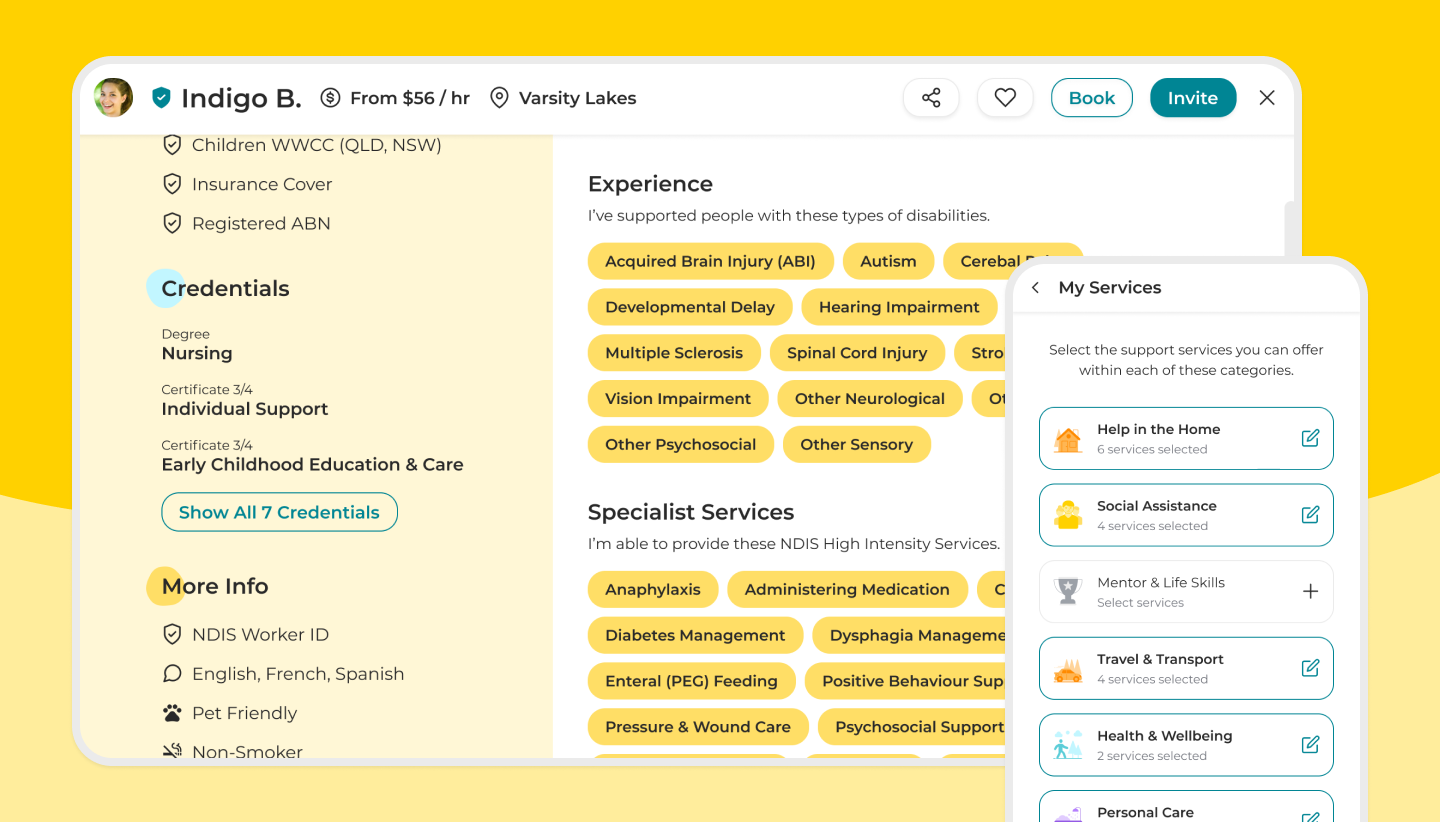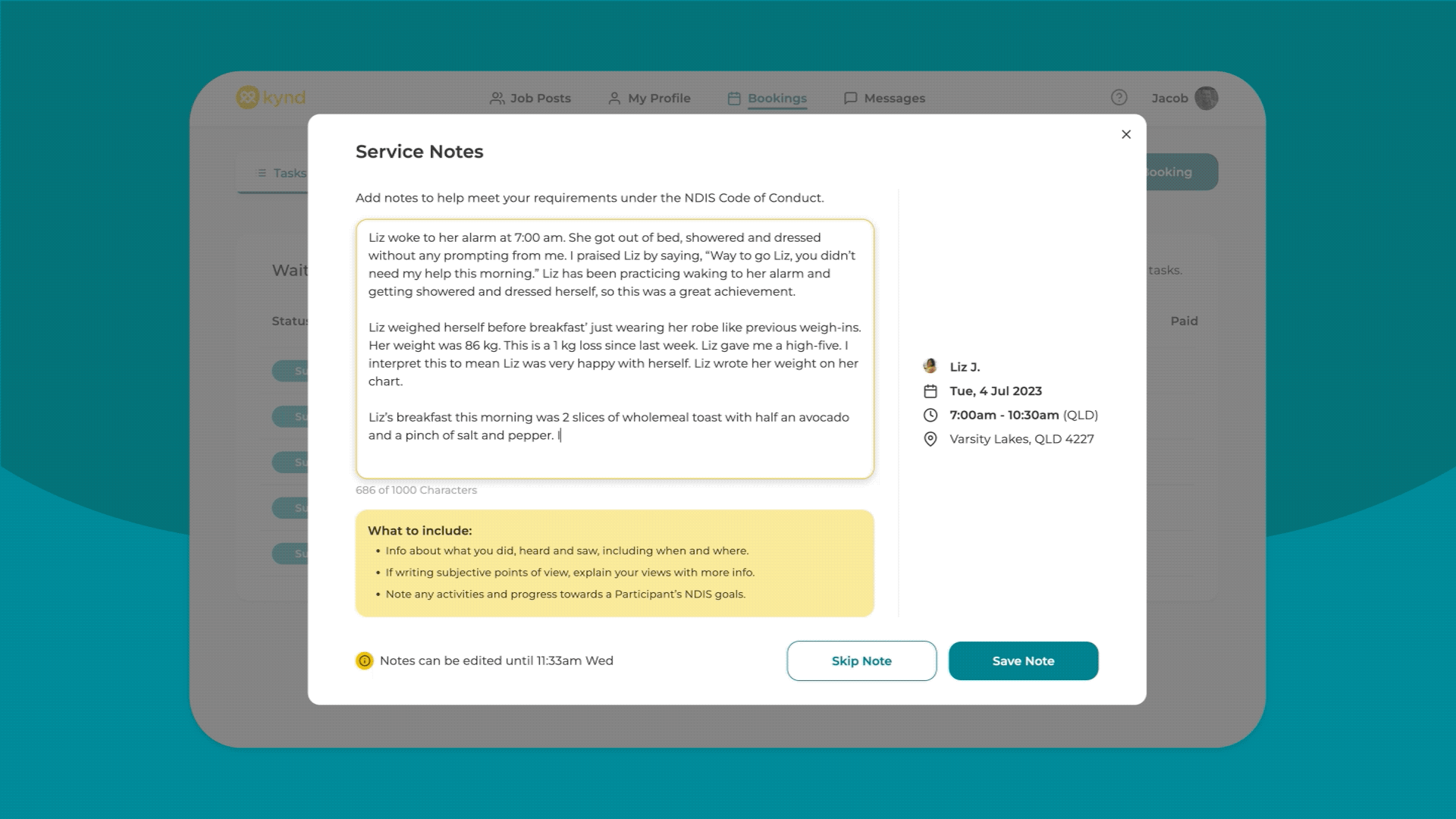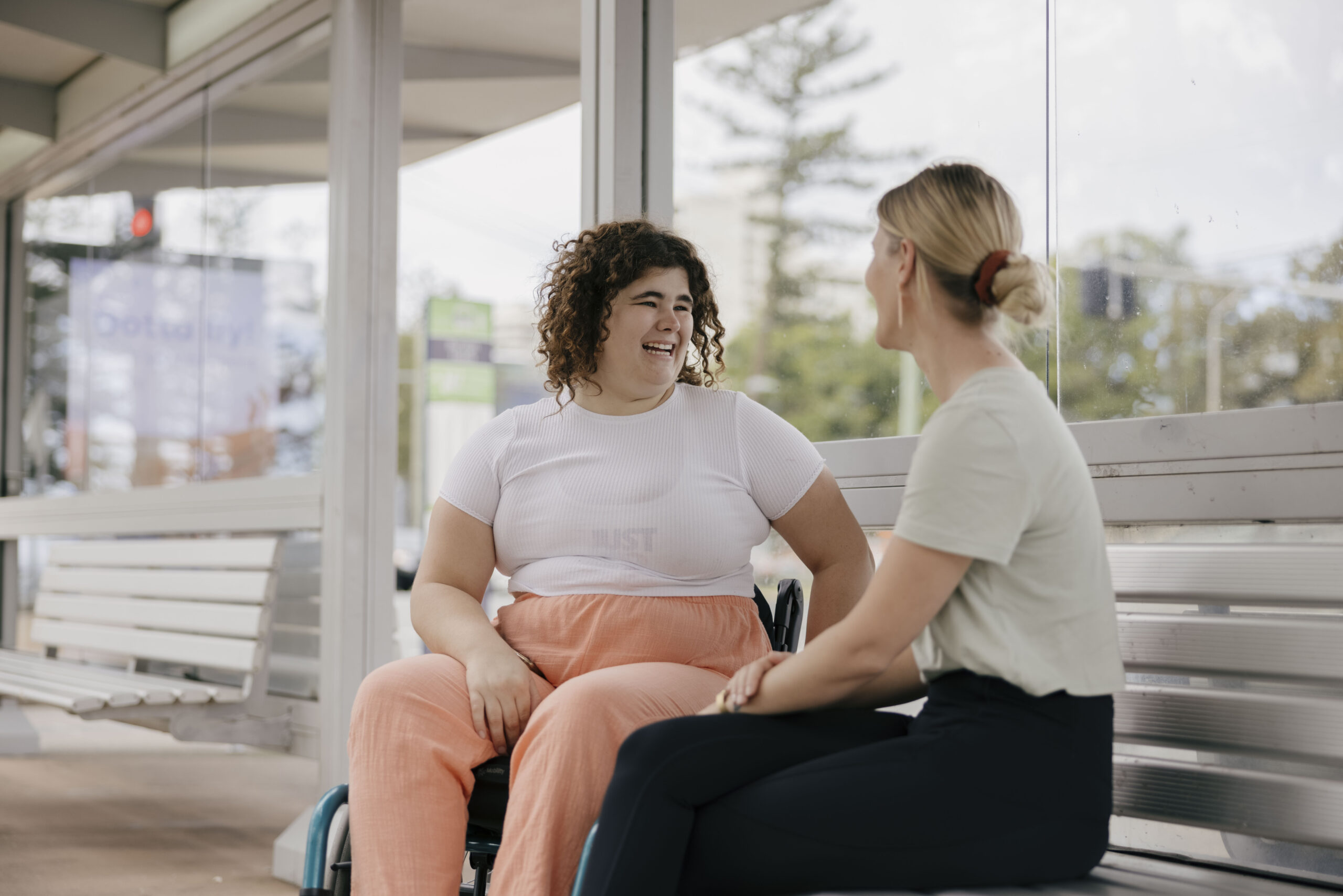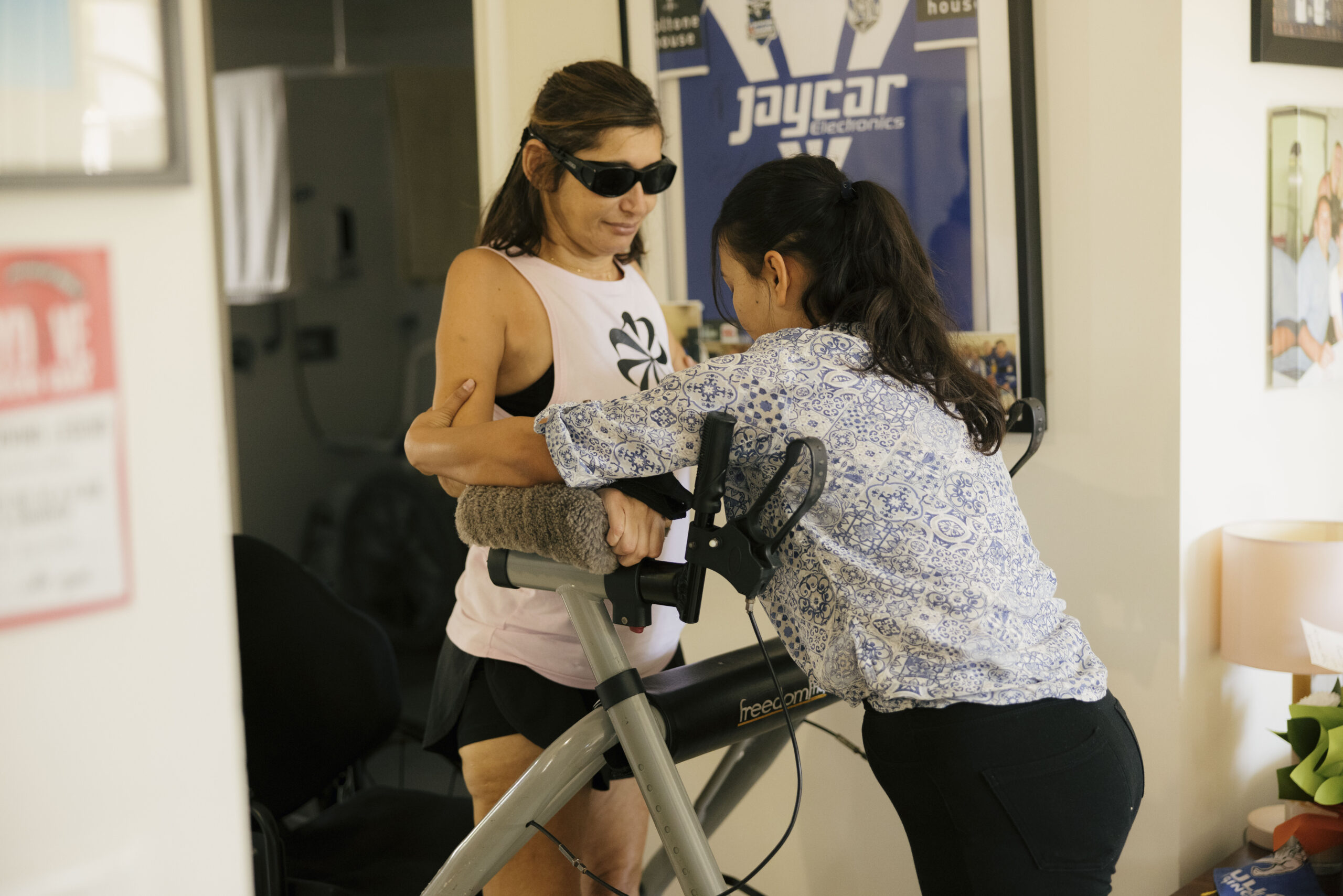When you’re a Support Worker, there are many different types of support you can provide for different NDIS Participants.
One of the types of support you can provide is active disability support for NDIS Participants living in Supported Independent Living (SIL) homes.
People who live in SIL typically have 24/7 support. This means Support Workers in SILs assist people to live a typical life, just like the rest of us.
Here’s a little bit more information about SIL homes and what to expect when providing support in a SIL home as a Support Worker.
What Is Supported Independent Living (SIL)?
Here’s how the NDIS defines Supported Independent Living (SIL) for NDIS Participants:
“Supported independent living is one type of support to help you live in your home. It includes help or supervision with daily tasks, like personal care or cooking meals. It helps you live as independently as possible while building your skills.”
Support Workers in SILs provide support at home, like assisting Participants with daily tasks such as meals, cleaning, medication and personal care. But working in SILs is also about understanding the Participant deeply in the context of what a good life looks like to them, and assisting them to achieve that life.
So, in addition to helping with tasks around the home, Support Workers in SIL homes are supporting Participants with so much more - because living a good life is more than just accomplishing tasks associated with daily living.
Who Receives Funding For SIL In Their NDIS Plan?
Supported Independent Living is funded by the Core Supports budget, under 'Assistance with Daily Life' in a Participants’ NDIS plan. SIL is a paid personal support and is best suited for people with a disability who have ‘higher support needs.’
‘Higher support needs’ means an NDIS Participant needs a significant amount of help throughout the day, seven days a week, and includes overnight support.
Supported Independent Living is usually funded when Participants live with other Participants and share supports with them. It’s one type of help or supervision with daily tasks (like personal care or cooking meals) to help Participants live as independently as possible and build their skills, in a SIL home.
What Is A SIL Home?
A Supported Independent Living (SIL) home is a shared living arrangement of 2 to 7 NDIS participants, that includes 24/7 support in a home environment.
SIL supports people with disability that require assistance with daily life tasks.
What Type Of Services Are Needed In A SIL Home?
As long as it meets the NDIS funding criteria, SIL services may include:
- help with personal care tasks
- help build skills in things like meal preparation and cooking, cleaning, and developing a routine
- help to action any behaviour support plans
- help to develop social skills
- support with supervision, personal safety and security
- support to give Participants their medication
- support for medical appointments
- community access that is not routine or regular, for example, support to complete personal tasks
- support to get to and from community access activities, e.g. support to attend hydrotherapy sessions, or to visit family or friends outside of the home.
What Type Of Support Workers Are Needed To Assist With SIL?
SIL consists of ‘active disability support’, which includes direct support, where a Support Worker helps a Participant do something or does something for them.
It might also include monitoring support, where a Support Worker supervises Participants doing things by themselves and can help when needed.
Tip - Active disability support only includes support provided during the day. Overnight support is worked out separately, depending on the Participants’ needs and whether they require someone to be awake at night to support them.
The specific type of support provided will vary depending on the Participants’ needs. Some Participants will have specific requirements, e.g. they’ll require support to take their medication, which will require a Assist Clients with Medication skill set.
Capacity Building Support
So while Support Workers in SILs assist people to live a typical life, just like the rest of us, they also provide a lot of capacity-building support.
Where capacity can be built, Support Workers in SILs help people to become more independent - from day to days tasks to self-advocacy and self-determination. So working in a SIL home has to opportunity to be a really holistic and fulfilling role!





















